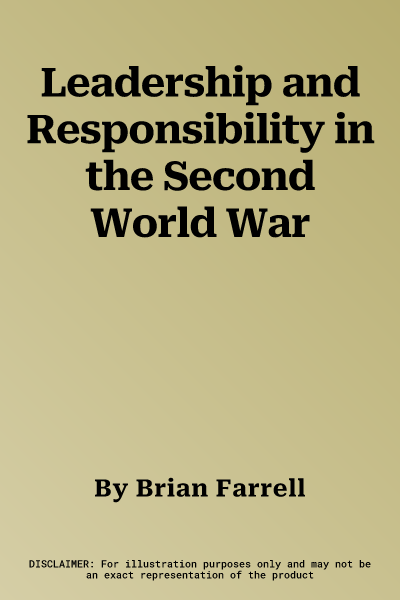Brian Farrell
(Author)Leadership and Responsibility in the Second World WarHardcover, 11 May 2004

Temporarily out of stock
Free Delivery
Cash on Delivery
15 Days
Free Returns
Secure Checkout

Print Length
304 pages
Language
English
Publisher
Carleton University Press
Date Published
11 May 2004
ISBN-10
0773526439
ISBN-13
9780773526433
Description
Product Details
Author:
Book Format:
Hardcover
Date Published:
11 May 2004
Dimensions:
22.86 x
15.24 x
2.54 cm
Genre:
1940's
ISBN-10:
0773526439
ISBN-13:
9780773526433
Language:
English
Pages:
304
Publisher:
Weight:
521.63 gm